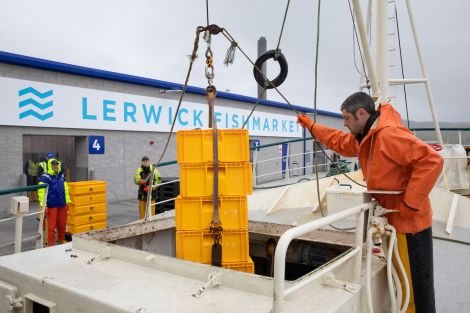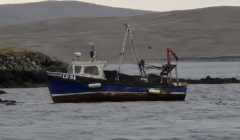Marine / New study highlights post-Brexit fish landing opportunities
THE UK would “soar up the global league table” of fish landings if it followed Norway’s lead in controlling its own waters, according to industry leaders.
A new study from NAFC Marine Centre’s Ian Napier shows that if the UK followed the Norwegian scenario, it would catch more than twice what it currently does.
Norway, which controls its own waters, is believed to land 84 per cent of the fish and shellfish caught in its waters, while for Iceland the figure stands at 95 per cent.
Under the EU’s Common Fisheries Policy (CFP) more than 70 per cent of the fish and shellfish landed from the UK Exclusive Economic Zone (EEZ) is caught by non-UK vessels.
After 1 January 2021, both government and industry have made it clear that control over access to the UK EEZ will revert to the UK in line with international law, and annual negotiations will be held over fishing opportunities.
An agreement was recently struck between the UK and Norway on fishing arrangements.
Executive officer of the Shetland Fishermen’s Association Simon Collins said the new study “highlights perfectly the inequitable nature of the CFP as far as UK boats are concerned”.
“Far more of the fish in our waters is taken by vessels from other countries than by our own, and nothing rankles more with our members than that,” he said.
“Nobody is saying that we would get to the Norwegian scenario overnight, but the figures show that our ambition to become a truly global player in sustainable fishing is entirely realistic.”
The analysis also showed that the UK’s ranking for fish landings declined from 6th in the 1950s to 25th by the early 2000s.
This reflected both the decline in landings by UK fishing boats and the expansion by other nations exercising historical fishing rights but also buying up UK quota.
Become a member of Shetland News
Meanwhile, the Scottish Government and Food Standards Scotland (FSS) have published information and guidance to help the seafood sector prepare for the end of the EU exit transition period.
From 1 January businesses trading with EU member states, European Free Trade Association (EFTA) countries and several other countries will do so on a ‘third country’ basis which means they will need to have documentation and certifications in place.
In preparation, the Scottish Government has been working with FSS to collate pre-existing Scottish and UK Government advice for seafood exporters and importers, bringing together relevant information on issues like fishing vessel registration and inspections by local authorities, and guidance on effective monitoring and enforcement of marine and fishing laws.
It also includes information on what the requirements may be for the movement of goods between Great Britain and Northern Ireland, and guidance on how to export and import from 2021.
Rural economy secretary Fergus Ewing said: “Things are more uncertain than ever right now, but we do know that the transition period will end on 31 December 2020.
“We would encourage all parts of the Scottish seafood sector to consider what steps they need to take to prepare for the changes they will face from January 2021.
“This information will continue to be updated as more guidance becomes available.”
Become a member of Shetland News
Shetland News is asking its readers to consider paying for membership to get additional perks:
- Removal of third-party ads;
- Bookmark posts to read later;
- Exclusive curated weekly newsletter;
- Hide membership messages;
- Comments open for discussion.
If you appreciate what we do and feel strongly about impartial local journalism, then please become a member of Shetland News by either making a single payment, or setting up a monthly, quarterly or yearly subscription.














































































